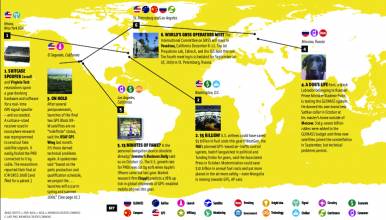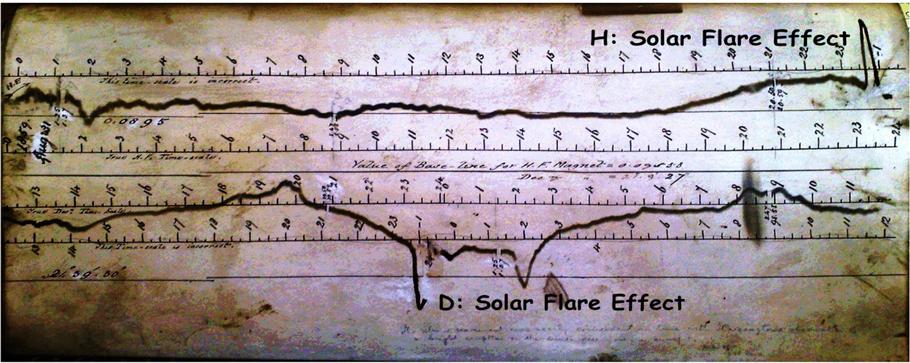 One of 12 magnetograms recorded at Greenwich Observatory during the Great Geomagnetic Storm of 1859
One of 12 magnetograms recorded at Greenwich Observatory during the Great Geomagnetic Storm of 1859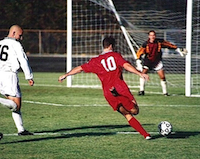 1996 soccer game in the Midwest, (Rick Dikeman image)
1996 soccer game in the Midwest, (Rick Dikeman image)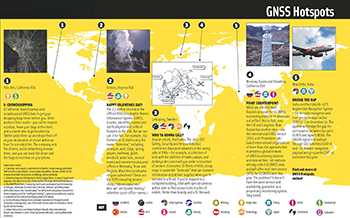
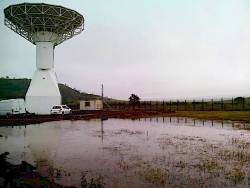 Nouméa ground station after the flood
Nouméa ground station after the flood A pencil and a coffee cup show the size of NASA’s teeny tiny PhoneSat
A pencil and a coffee cup show the size of NASA’s teeny tiny PhoneSat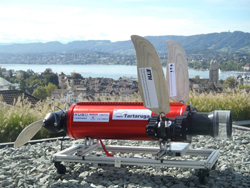 Bonus Hotspot: Naro Tartaruga AUV
Bonus Hotspot: Naro Tartaruga AUV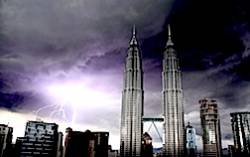
 Pacific lamprey spawning (photo by Jeremy Monroe, Fresh Waters Illustrated)
Pacific lamprey spawning (photo by Jeremy Monroe, Fresh Waters Illustrated) “Return of the Bucentaurn to the Molo on Ascension Day”, by (Giovanni Antonio Canal) Canaletto
“Return of the Bucentaurn to the Molo on Ascension Day”, by (Giovanni Antonio Canal) Canaletto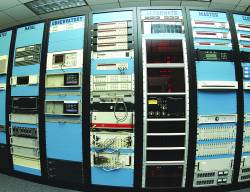 The U.S. Naval Observatory Alternate Master Clock at 2nd Space Operations Squadron, Schriever AFB in Colorado. This photo was taken in January, 2006 during the addition of a leap second. The USNO master clocks control GPS timing. They are accurate to within one second every 20 million years (Satellites are so picky! Humans, on the other hand, just want to know if we’re too late for lunch) USAF photo by A1C Jason Ridder.
The U.S. Naval Observatory Alternate Master Clock at 2nd Space Operations Squadron, Schriever AFB in Colorado. This photo was taken in January, 2006 during the addition of a leap second. The USNO master clocks control GPS timing. They are accurate to within one second every 20 million years (Satellites are so picky! Humans, on the other hand, just want to know if we’re too late for lunch) USAF photo by A1C Jason Ridder. 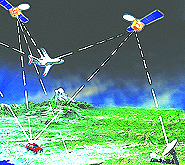 Detail of Compass/ BeiDou2 system diagram
Detail of Compass/ BeiDou2 system diagram Hotspot 6: Beluga A300 600ST
Hotspot 6: Beluga A300 600ST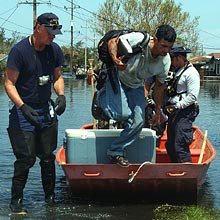

Catching thieves in California, Galileo satellites test Einstein, Russian space agency remodel, and 911 training for operators who can’t read maps.
Catching thieves in California, Galileo satellites test Einstein, Russian space agency remodel, and 911 training for operators who can’t read maps.
1. TO CATCH A THIEF
Arcadia, California USA
√ Porch package delivery bandits have met their match. Police northeast of Los Angeles partnered with citizens and local businesses to bait certain alluring packages with GPS tracking devices that notify police when they have been stolen. Police Sgt. Brett Bourgeous says they have arrested numerous suspects who fell for the decoys. Even some real stolen packages were recovered and returned to their intended recipients.
- January 10, 2016 Pasadena Star-News: Arcadia theft suspect arrested with use of GPS ‘bait package’
- December 21, 2015 Inside Edition: Police Department Puts GPS in ‘Bait’ Packages to Track Doorstep Thieves
- December 20, 2015 CBS Los Angeles: Police Department Puts GPS in ‘Bait’ Packages to Track Doorstep Thieves
2. TESTING EINSTEIN
Germany, France, and MEO
√ German and French physicists are repurposing two Galileo satellites to test Einstein’s general theory of relativity. The European Space Agency’s Galileo V and VI satellites were launched into “very eccentric” orbits in 2014, due to a technical glitch. For the next year, researchers will see if rubidium atomic clocks on the satellites tick more slowly — in microseconds — the closer they are to Earth. This will test gravitational redshift or the gravitational time relation, a “very basic prediction of general relativity,” says Sven Hermann, an experimental physicist at the University of Bremen. Eccentric orbits and Einstein? Seems like a happy match.
- November 9, 2015 ESA website: Galileo Satellites Set For Year-Long Einstein Experiment
- December 21, 2015 PRI: How a mislaunched satellite might help us test Einstein’s theory of general relativity
- December 4, 2015 Science Friday: Errant Satellites Provide Test Case for General Relativity
3. REMODELING
Moscow, Russia
√ President Vladimir Putin dissolved the Russian Federal Space Agency, effective January 1, after numerous scandals and mishandled launches. Its functions will merge with those of a state-owned, centrally managed company — United Rocket and Space Corporation established in 2013 — to create a “unified command structure and reduce redundant capabilities.” But the more things change, etc. The new all-in-one state corporation responsible for the whole space sector, soup to nuts, will still be known as Roscosmos.
- January 14, 2016 TASS (Russian News Agency): Russia decreases number of satellites in its 2025 plan due to budget cuts
- December 30, 2015 InterFAX: Daily Headline News for December 30, 2015
- December 28, 2015 TASS (Russian News Agency): Russian space agency gets replaced by state corporation — Kremlin
4. 911 AND GPS
Nationwide, U.S.A
√ Where did that old mill used to be, anyway? Reliance on GPS is starting to cause worry among emergency dispatch agencies and their operators. With the new workforce unfamiliar with map-reading, and no long-term memory of landmarks due to satellite navigation, dispatchers can be at a loss to locate a frantic cell phone caller who is in a locally known but hard-to-map area — or if systems are down. Training is starting up in some areas to address the issue. In September of last year, the police commissioner in Staten Island ordered dispatchers to undergo retraining after a 911 caller claimed the operator she reached had no knowledge of the Staten Island Railway.
- January 12, 2016 Officer.com: GPS and the 9-1-1 Operator
- September 29, 2015 Staten Island Live: 911 call takers, dispatchers ordered to learn more about Staten Island
- APCO Minimum Training Standards for Public Safety Communicators

